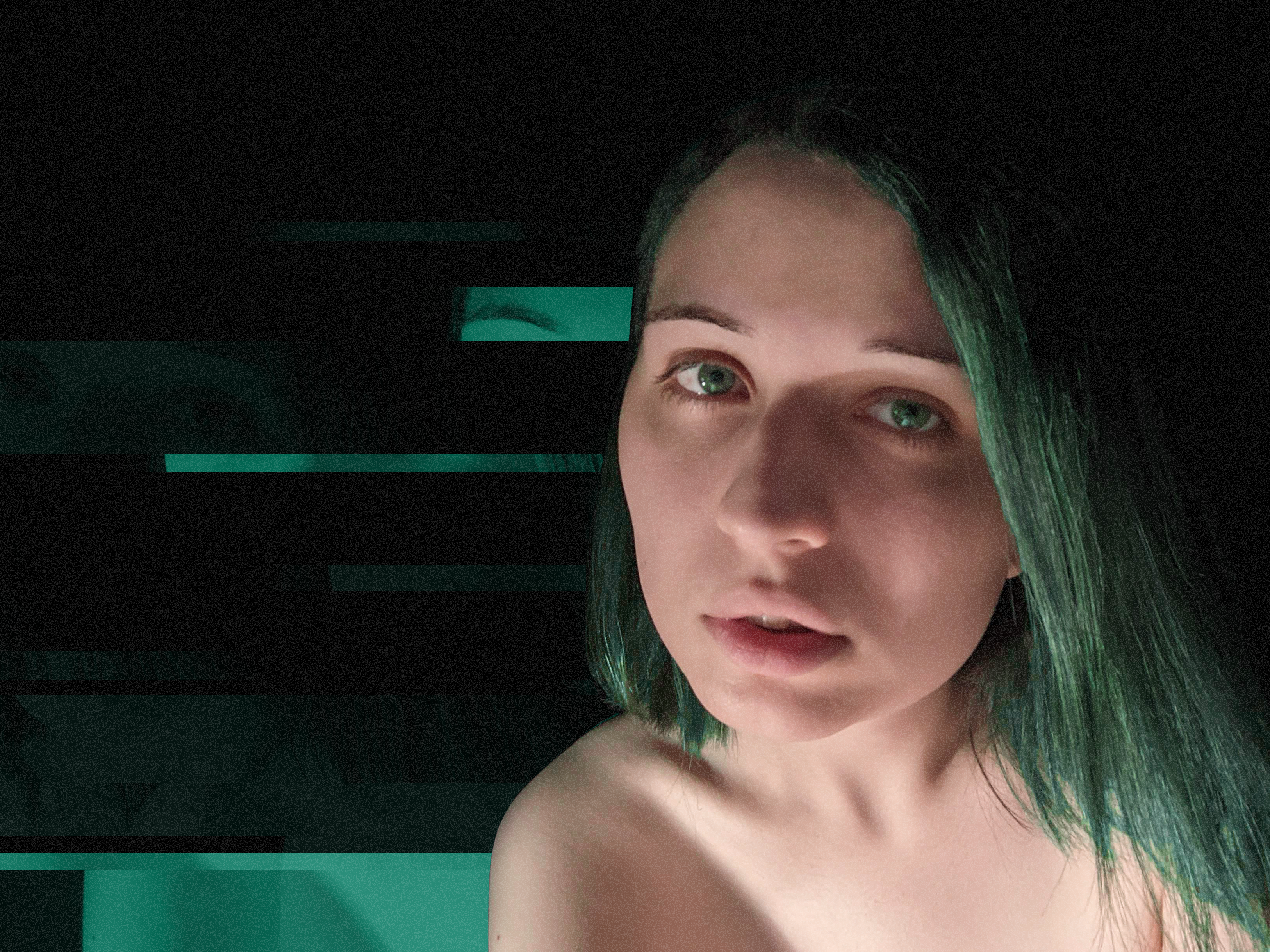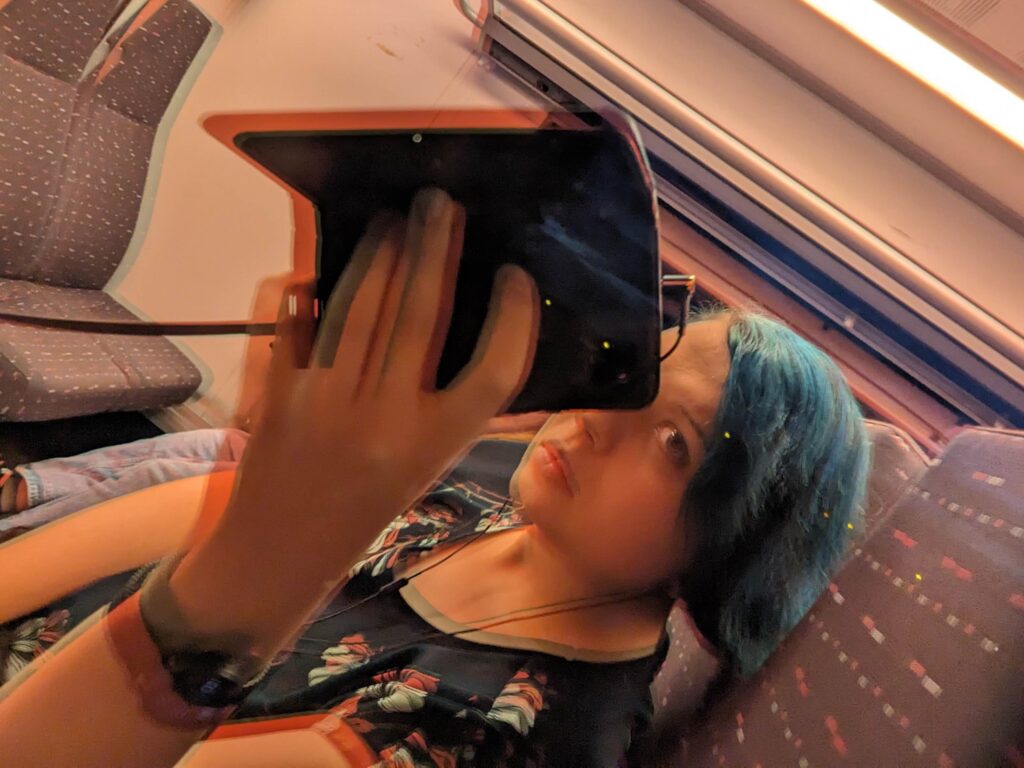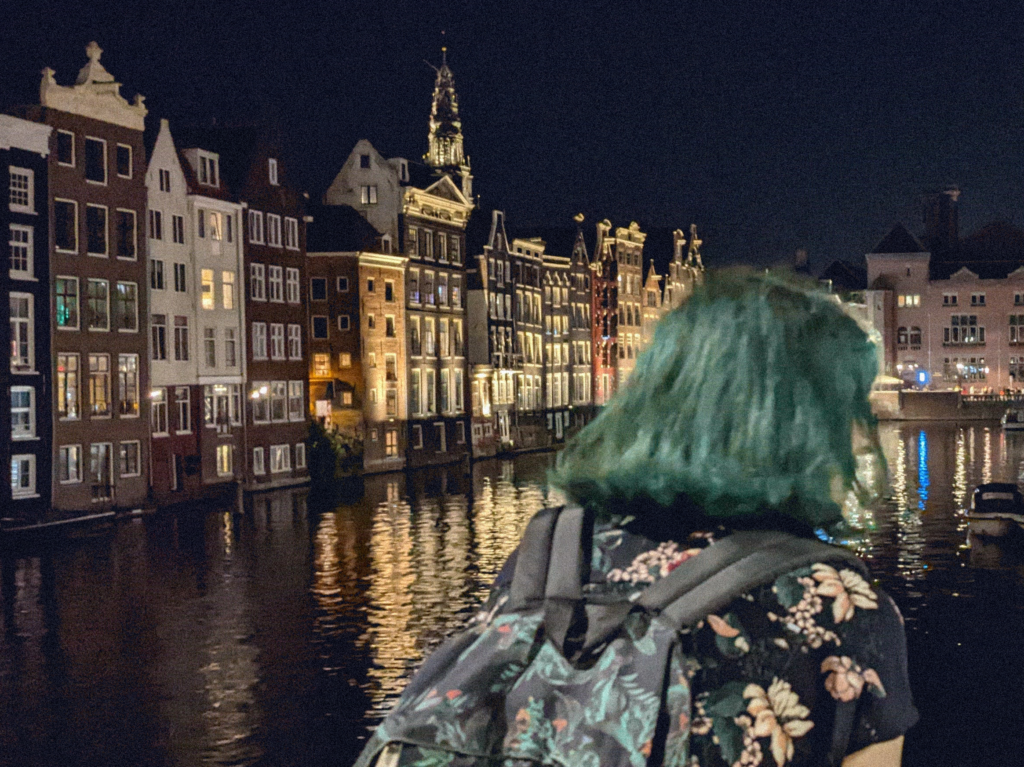Once upon a time, in a musical journey that took unexpected turns, lyra messier found her way to the enchanting realm of progressive rock. As a young child, Lyra embarked on her musical odyssey, initially guided by the structured notes of classical music. Yet, despite her early immersion, the classical landscape failed to ignite the passion within her.
The melodies felt like a chore, and the piano keys became a mundane routine. Lyra’s discontent grew until, at the age of 13, she decided to chart her own course. A fan of indie rock, she began transforming the tunes she adored into piano renditions, infusing them with her own creative spirit.
As the chords of indie rock echoed in her heart, Lyra’s musical palate expanded, ushering her into the ethereal world of post-rock. The Icelandic band Sigur Rós became her muse, opening a gateway to a new sonic dimension. Yet, the most transformative revelation awaited her when she stumbled upon the mesmerizing sounds of Porcupine Tree.
The progressive rock universe unveiled itself before Lyra’s ears, and she became captivated by its intricate rhythms and expansive compositions. The echoes of Porcupine Tree resonated with her soul, leaving an indelible mark on her musical identity.
Throughout this transformative journey, Lyra didn’t just consume music—she crafted her own. Armed with an iPod Touch and the GarageBand app, she began weaving her melodies. The compositions evolved over time, finding a new home in Logic Pro, where her musical experiments took flight.
The essence of progressive rock seeped into Lyra’s creations, influencing the evolution of her sound. The culmination of her musical metamorphosis manifested in her latest album, a testament to the winding paths and unexpected influences that shaped her distinctive musical narrative.
“Frighten,” the song featured on the “Progstravaganza: Harmony in Complexity,” stands as a testament to the intricate threads woven through her life. The song’s inception dates back to 2015, a mere seed of an idea germinating in her mind—a progression from a whispery apology to an angry declaration. The emotional core of “Frighten” found its voice in the aftermath of a tumultuous relationship, a therapeutic outlet for the anger that surged within her.

As the song unfolded, its structure bore the influence of Lunatic Soul, inspired by Mariusz Duda‘s work in the realm of progressive rock. Lyra drew inspiration from Steven Wilson‘s sinister characters, crafting a musical narrative that mirrored her own emotional landscape. The composition, with its recognizable themes evolving into a wild, repetitive prog section, echoes the influence of “Gutter” by Lunatic Soul.
Delving into her creative process, Lyra unveils the organic genesis of her latest self-titled album. Unlike her previous endeavors, this album emerged from piano sketches, emphasizing a more song-oriented approach. She goes on saying, “This is actually my first album with any vocals, so that part of the process was completely new to me. Generally the melodies came first and I wrote lyrics to suit them, though there are a few exceptions. I chose to write in both Dutch and English since I grew up with both languages and do not have any preference for one over the other—which I chose was largely a stylistic decision based on what sounded best in the song. Songs usually start with ideas I have for melodies and motifs, though there are exceptions to this—in the case of “Sevastopol”, for example, I specifically set out to write a song about a theme I was passionate about and came up with the music from there.“
Influences played a significant role in shaping Lyra’s sonic identity. Steven Wilson and Mariusz Duda, with their distinct approaches to song structures, left an indelible mark. The electronic-infused post/prog rock of 65daysofstatic provided a unique blend that resonated with her musical aspirations. Modern metal acts like Bring Me the Horizon and Spiritbox, along with singer-songwriters (Eefje de Visser and Marika Hackman), further enriched her musical palette.
Yet, the journey wasn’t without its challenges. Lyra faced opposition during her music production studies, with teachers attempting to fit her square peg into a pop music round hole.
“Even a six-minute song did not fit their idea of a ‘concise story’ and when I tried and failed to make my lengthy, slow-building club track (‘Asunción‘ , from the last album) more ‘interesting’ , I promptly received a failing grade. All this made me even more wary of the entire music business and I did not continue my music education because it became pretty clear to me I could never do what I truly wanted within that frame.“
She continues: “Most of my peers also never took my work seriously. They still often don’t, really. My former classmates are now in jazz bands and seem to believe their adherence to a ‘proper’ genre makes their work superior. Because I make electronic guitar music in my bedroom and not in a serious studio, I could never be on their level. I think that’s such a classist and reductive view of what music is, honestly. Luckily I have become confident enough to march on despite all this; it’s become clear that being a lone wolf suits me better.
“It cannot be denied though that my music is not exactly marketable. I’ve been trying to reach a wider audience by selling myself on Instagram, but I find self-promotion incredibly draining and not very genuine to me as a person. I’m not sure I’ll ever reach a wider audience with what I do, but it would be cool to cultivate a small community of nerds like me someday.
“And lastly: being an opinionated queer woman in a scene like this can be hard. I am often not expected to speak up and break out of the molds society has created for me. Luckily most prog fans I’ve met have actually been very open and supportive, but I do run into the occasional type that feels someone like me does not belong in the scene. Whilst this isdisheartening it is something I’ve built up somewhat of a tolerance for, and I will never allow it to limit my creativity.“

Looking ahead, Lyra envisions a future where the fusion of electronic music and progressive rock would take center stage. As a trailblazer in this niche combination of genres, she hopes to contribute to the evolving landscape of progressive music.
Share with us some of the most memorable moments in your musical journey so far.
Lyra: This may seem very trivial, but the main reason my career even exists is so I can see my own work appear on Spotify next to all the music by the people I look up to. Release days are always the most joyous for this reason. It’s like everything I worked on has finally come to life and I love that feeling.
Beyond that I’m the happiest when fans send me thoughtful messages! I am a massive nerd about other people’s music myself, so reading someone else’s analysis of what I do is always a big ego boost.
Do you have a personal favorite among your own compositions? If so, which one and why?
Lyra: I think that has to be “Collision”, from the 2020 album, simply because of how long it took to get right and how happy I was when I finally did. The killer melody in that song dates back to 2015, but I did not have the production skills at the time to really turn it into a good final product. I revisited it four years later with my friend Achilles on guitar and it finally turned into something I’m incredibly proud of. The ambient outro to the song was entirely unplanned as it originally ended at around 8 minutes, but it has also become one of my favourites in my entire discography; I think it’s beautifully dreamy and the callback to “Malmö” earlier on the album is just the icing on the cake.
Can you give us a sneak peek into any upcoming projects or collaborations you’re working on?
Lyra: My next album has actually already been released! [editor’s note: on 19 January] It’s a lot more of a passion project and I do not expect it to do big numbers, but I’m also incredibly proud of it. It’s a track-by-track reimagining of the album Von by Sigur Rós, who as I mentioned earlier were one of my favourite bands growing up. Taking that album and using it as a blank canvas to create new things has been a long-standing dream of mine.
Beyond that I am also working on new original material. I’ve recorded two songs already, with several more already written. The project is shaping up to be even more lyrical, with even some hip-hop influence. I’m still not sure what the whole picture will look like, but I am preemptively excited!
What does it mean to you to be a part of our compilation? How has the experience been for you?
Lyra: It was really nice to be approached for this compilation as I’ve always felt like somewhat of an outsider to the prog music scene. I’m also super excited to discover some new music by the other artists appearing. This has all been a real honour for me!
Is there a message you’d like to convey to your fans who will be discovering your music through this compilation?
Lyra: If you enjoyed this song, I can really only recommend you listen to the album in full! “Frighten” is the obvious entry point; if you enjoyed its blend of prog rock and electronic music, I think you will love the rest, too. The whole thing flows together very seamlessly and I think it works best when you listen to it in one go. And when you’ve done that, you may also enjoy my fully instrumental 2020 album, which I’m also still incredibly proud of!
If you could collaborate with any artist, living or not, who would it be?
Lyra: I think Everything Everything and I could make a great song together. Their tight production and ear for catchy melodies and my absurd song structures and guitar and synth freakouts: bring it on!
If you had to pick one instrument (besides your primary one) to master, what would it be?
Lyra: Definitely guitar. Writing for progressive rock as a pianist can be challenging and though I love bringing my songs to life with cool guitarists, it being the only part of the process I do not fully control can be difficult sometimes. It also slows everything down—when I have a guitar riff idea now I cannot just play it.
What’s your all-time favorite progressive rock album, and why? One album that you always return to.
Lyra: I find picking one favourite extremely difficult. The most pivotal album for me was probably Wild Light by 65daysofstatic, because of how much it defined my taste in music and the bar I set for myself going forward. But I also want to shout out Grace for Drowning by Steven Wilson. It’s probably one of his least accessible albums and took a while for me to get into, but since it clicked it has blown me away on every listen with its immeasurable scope. I’d love to make an album like that someday.
Are there non-musical influences that find their way into your music? (e.g., literature, art, science)
Lyra: I was very into astronomy as a kid and a lot of that has made it into my music, albeit more as an aesthetic than anything. There are also a lot of train samples as I am a bit of a public transit nerd and love travelling by train especially. Travel in general is a big theme in my life that makes its way into my work as a result; I’ve used names of cities and words in different languages a lot as titles.

Any final thoughts or reflections you’d like to share with our audience?
Lyra: I hope everyone reading this is doing okay! It’s a tough world out there and every news update seems more depressing than the last. I very much use music to channel my emotions and if it helps anyone else cope that would be the biggest compliment you can give me, really. I hope you’ll continue to check out my work going forward!
Where can our audience find more about you and your music?
Lyra: I have a website at lyramsr.co which also contains links to all my social media (such as Instagram). You can find my music on all the usual services, like Spotify and Apple Music, and you can also purchase it (including some CDs of the new album!) on Bandcamp. You might also be interested in subscribing to my YouTube channel where I occasionally talk about the music of other artists I’m enjoying!

